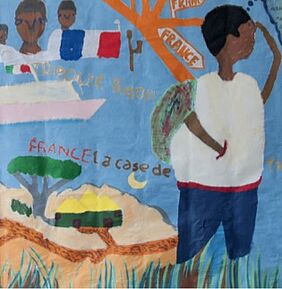Unaccompanied Minors : Policy and Practice in European countries
Journée d'études Manifestations scientifiques Axe 1 Axe 2
Cité scientifique, bât. SH2, salle des conférences
Inscriptions MNA-Juin-2019
In many European countries, the number of unaccompanied migrant children and adolescents has increased in recent years. Countries that have ratified the Convention on the Rights of the Child must protect them, provide for their education and enable them to access the care. The administrative name currently adopted is that of unaccompanied minors (UM). Despite the commitment of European countries to wellcome UMs, they often are in an uncomfortable position between their migrant status and their children status. In France, after a very brief takeover by the State upon their arrival on the territory, young people should taken in charge but the child protection service [“Aide Sociale à l’Enfance” (ASE)] and the territorial level that provides to their needs is the “department”. Their minority is often called into question, and when their 18th birthday comes, their protection can be interrupted, or, at best, extended until the age of 21, that become a new deadline for their administrative status. After 21, they must provide for their own needs by asking, if necessary, to universal services.
In a comparative perspective, we invite participants from European countries to present the main features of the policy for unaccompanied minors in their country and the concrete methods of implementing them. Several aspects can be developed: accommodation housing, access to schooling and training, access to health care, organization of educational support, status and follow-up to young people after 18 years. In this comparison, we would like to favour a sociological perspective that focuses on the concrete implementation of the reception and integration of these children in each country.
As a follow-up to the 18-19 June 2018 events organized at the FSES, and at the EUSARF European Council on Residential & Family Care for Children and Adolescents board meeting, we are organizing this day of study on the comparison of forms of reception of unaccompanied minors in the European countries represented that day (possibly: Germany, Belgium, Denmark, Spain, Finland, France, Ireland, Italy, Great Britain, Nederland, etc.). As last year, we are opening this day for researchers from CERIES and Axis1 of Clersé laboratory working on childhood and/or migration, as well as French researchers interested in these issues from the perspective of the life course in child protection and transitions to adulhood.

